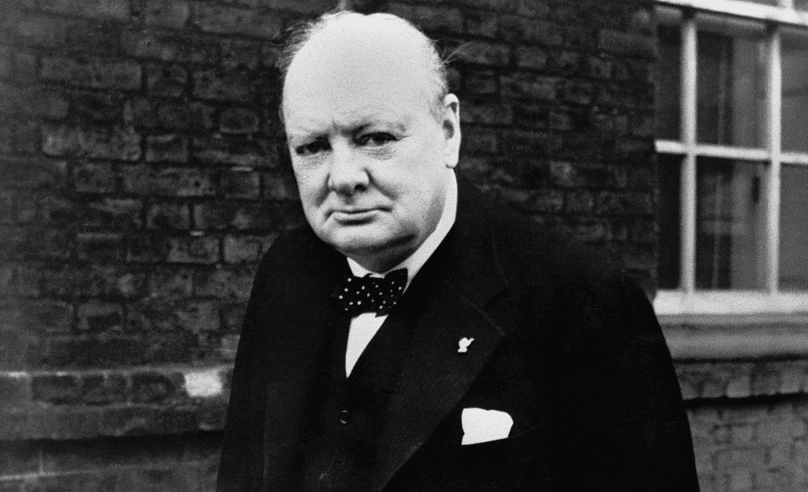Participants in near-political discussions like to quote the British prime minister: “Whoever was not a radical in his youth (optionally, a liberal - editor’s note) has no heart; whoever has not become a conservative in adulthood has no mind.” We checked whether Churchill said something similar.
In various variations of the catchphrase, a liberal or a revolutionary is mentioned instead of a radical, and 25 or 40 years old instead of youth. It is common practice to associate the quote with Churchill everywhere. This was done by the head of the State Emergency Committee Gennady Yanaev (explaining why he came onto the political scene quite late), TV presenter Vladimir Pozner and writer Alexey Ivanov. A statement authored by Churchill was included in a biographical bestseller "Thatcher: The Unknown Maggie" and in all sorts of ways collections of aphorisms.
The first thing that catches your eye when studying Russian-language literature with variations of this phrase is that it gained popularity in the Land of the Soviets only in the second half of the 1970s, many years after Churchill’s death. And “with a French accent.” So, in 1977, her attributed the premier of the collaborationist government, Pierre Laval, and in 1988 - his predecessor during the First World War to Georges Clemenceau. In both cases, a socialist was mentioned instead of a radical or liberal. Another French prime minister, Raymond Poincaré, was put into the mouth in 1985 statement: “Gentlemen, I feel sorry for those who were not revolutionaries in their youth.” But Soviet literature did not mention their British colleague in this context.
There is an explanation for this. The fact is that the oldest mention of variations of this phrase in printed sources refers specifically to France. The website quoteinvestigator.com claims that it first appeared in 1875 in a collection of biographical portraits by Jules Claretie. The section dedicated to the former Minister of Public Instruction Anselm Bathby contained a quote from his letter: “Celui qui n’est pas républicain à vingt ans fait douter de la générosité de son âme; mais celui qui, après trente ans, persévère, fait douter de la rectitude de son esprit,” which can be translated as “whoever is not a republican at the age of 20 raises doubts about the generosity of his soul; but whoever persists in this after 30 raises doubts about the correctness of his mind.” The book calls this statement "Burke's Paradox." The Briton Edmund Burke, the founder of the theory of conservatism, first strongly supported the American Revolution, but then just as decisively opposed the French Revolution.
However, a careful search reveals it in an older edition - a book by Felix Sorde 1870–71, ou Une page d'histoire; administration et guerre, published in 1873. Here the quote is also attributed to Edmund Burke, but without reference to Minister Bathby. It is quite possible, however, that Sorde could have seen Bathby's letter, quoted above.
In 1888, Bathby's statement was included in the French 31-volume Encyclopedia Grande, and since then its evolution began, accompanied by numerous connections with celebrities. So, in 1916, already in English, to the writer Victor Hugo attributed words: “If a man is not a Republican at 20, it is because he has no brains, and if he is a Republican at 40, it is because he has no brains.”
Only seven years later, the Wall Street Journal put into the mouth of the Swedish King Oscar II the aphorism “A man who has not been a socialist until he was 25 has no heart. If he remained a socialist after 25, he has no brains.” In 1936, in the collection Benham’s Book of Quotations Proverbs and Household Words, a similar quote was attributed to the next head of the French government, Francois Guizot. True, with a remark that a similar statement is associated with the already mentioned above Georges Clemenceau. And by 1944 the phrase had already become a full-fledged joke:
“One day, an excited supporter burst into Old Tiger Clemenceau’s private office and exclaimed: “Your son has just joined the Communist Party.” Clemenceau calmly looked at his visitor and remarked: “Sir, my son is 22 years old. If he had not become a communist at 22, I would have renounced him. If he is still a communist at 30, then I will do it.”
In 1977, in the next collection of aphorisms came in “quote” this time from the famous British political figure of the 19th century Benjamin Disraeli: “He who was not a liberal at 16 years old has no heart; “Anyone who hasn’t become a conservative by 60 has no head.” And only in 1986, in English-language publications, the already famous aphorism and the British prime minister of the 20th century met each other for the first time: “Winston S. Churchill allegedly once remarked that someone who was not a liberal at 20 has no heart, and someone who remains a liberal at 40 has no head.”
It happened in a Connecticut newspaper The Hartford Courant. Needless to say, such a quotation does not appear in the Churchill archives. The website of the International Churchill Society provides an opinion on this matter from Paul Addison, a British historian and author of two biographies of the British prime minister:
“I am sure that Churchill could not utter the words that are attributed to him. He was a conservative at 15 and a liberal at 35! And would he speak so disrespectfully of Clemmie (his wife Clementine - Ed.), who is believed to have been a liberal all her life?
And this quote adds to the already quite extensive collection catchphrases that Sir Winston Leonard Spencer Churchill never uttered.
Incorrect quote attribution
Read on topic:
1. https://quoteinvestigator.com/2014/02/24/heart-head/
2. https://winstonchurchill.org/resources/quotes/quotes-falsely-attributed/
If you find a spelling or grammatical error, please let us know by highlighting the error text and clicking Ctrl+Enter.






